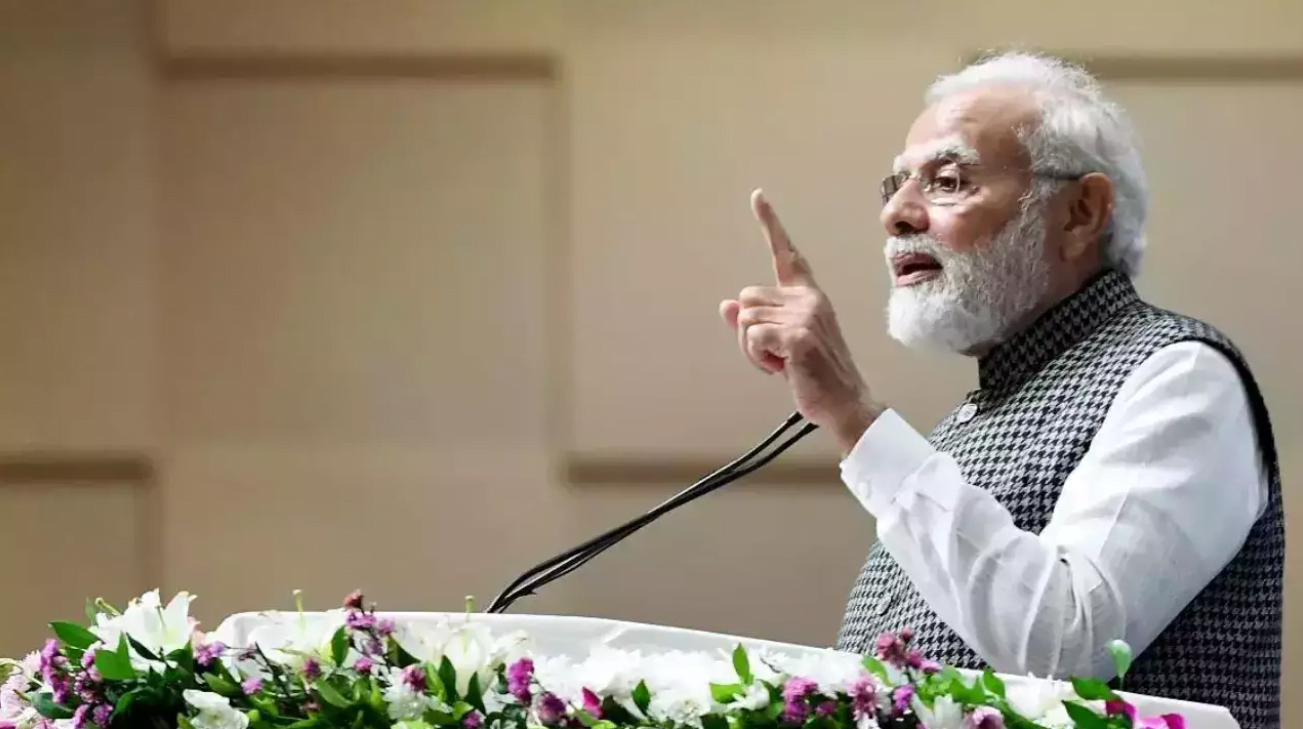Millets are climate resilient and will increase the income of 2.5 million small farmers: PM Narendra Modi

Prime Minister Narendra Modi said on Saturday that India has similarly pushed millet for global benefit, citing examples of India’s leadership in making Yoga a global phenomenon and creating an international platform for promoting solar energy. He stated at the World Millets Conference in New Delhi that millets will provide revenue to small farmers, solve food security challenges, reduce lifestyle diseases, and aid in climate change resilience.
Aside from delegations from the Maldives, Mauritius, Sri Lanka, Sudan, Suriname, and the Gambia, over 75 lakh farmers virtually attended the event held at the Indian Agricultural Research Institute in Pusa. At the event, a commemorative stamp and coin were also released.
The prime minister began by stating that the worldwide branding of millets would benefit the 2.5 million small and marginal farmers who rely on these products. He claimed that this was the first time since independence that the government had noticed small farmers’ problems at this level.
Modi stated in his presentation that India’s efforts to promote millets since 2018 had resulted in a rise in consumption in the 12 or so millet-growing states, with consumption increasing from 2-3 kg per person per month to 14 kg per person per month.
He stated that approximately 500 millet-related start-ups had been established. Farmer organisations and self-help groups are also taking action in this area. Millet goods have been chosen for the government’s ‘one district, one product’ scheme in 19 districts.
According to the prime minister, millets migrating from villages to malls and supermarkets have also built a new supply chain across the country, creating jobs for the youth.
The prime minister also mentioned millets’ climate resistance benefits. He claims that millets can grow in harsh climates, requires little water, and can be grown without chemicals. “This means millets preserve human and environmental health,” Modi stated in his speech. He went on to say that millet could help countries in the global south manage food security difficulties for their populations while also tackling the problem of eating habit-related diseases in the global north. According to him, the high fibre content of millet aids in the prevention of lifestyle disorders. “Sree Anna offers personal and global health remedies,” he explained.
In addition to sharing India’s knowledge in millets with the rest of the world, the prime minister stated that India would like to learn from other countries with newer solutions or specialisations.
To further promote millets, he stated that the government’s production-linked incentive programmes might be used to support an increasing number of food processing plants that deal with millets. Many states now purchase millets as part of their public distribution system, and the prime minister encouraged others to follow suit. Millets, he suggested, might also be incorporated into mid-day meals to provide children with nourishment, newer flavours, and variety. With millets accounting for approximately 5 to 6% of the country’s nutrition basket, he believes numerous prospects exist.
Modi closed his speech by inviting all those in attendance to ponder on the issues he addressed and develop a plan to implement them.



